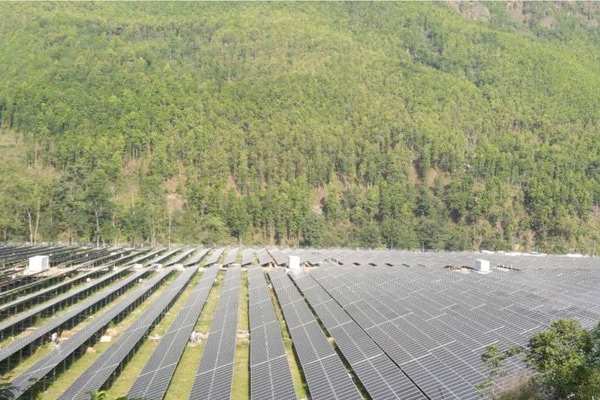Nov 11, 2020
Webinar on Enhancing Renewable Energy in Nationally Determined Contribution (NDC) of Nepal
Climate and Development Dialogue (C&D dialogue), a loose network of 11 civil society organizations, is facilitating dialogue and exchange of knowledge and learning on the interrelation between climate change, development and gender equality. It is also working to bridge a knowledge gap in these areas between the national and sub-national levels and generate collective actions for policy interventions. The dialogue has been organizing a webinar series entitled ‘Climate Change and COVID-19’.
A webinar on ‘Enhancing Renewable Energy in Nationally Determined Contribution (NDC) of Nepal” was organized on 11th November 2020. The webinar was intended to present the current scenarios and policy landscape relating to the promotion and enhancement of renewable energy in Nepal and to initiate a discourse on the importance and urgency of enhancing renewable energy in such a manner as to achieve the Nationally Determined Contribution targets. The webinar brought together major stakeholders working in climate change and renewable energy (RE) who shared their views on the importance of including RE in the NDC as a major mitigation measure. The expert presentations provided valuable food for thought for the discussion.
Presentation 1: Status of RE and Existing Policies for its Enhancement in Nepal-Dr. Indira Shakya, Gender and Energy Expert
Presentation 2:Enhancing Renewable Energy in Nationally Determined Contribution (NDC) of Nepal- Mr. Prabin Man Singh, Program Director, Prakriti Resources Centre
Expert remarks by Mr. Nawa Raj Dhakal, Deputy Executive Director, Alternative Energy Promotion Centre (AEPC), the Government of Nepal
Synthesis of Discussion:
- Renewable Energy is a key sector in Nationally Determined Contribution (NDC) that complements both climate mitigation and adaptation targets of Nepal. Production and utilization of RE can reduce the country’s Greenhouse Gases Emissions and also provide much-needed power to ignite adaptation actions across different sectors.
- The 15th plan and Nepal’s SDG roadmap 2030 have set progressive targets on renewable energy. The targets include 5000 MW installed capacity, 99% electrification coverage, per capita electricity consumption 700kw/hr, increase in RE share by 12% in overall energy consumption, reduction in dependency of firewood from 68% to 30% by 2030 and limiting LPG consumption by less than 40%. These targets provide a good basis to set NDC targets on RE.
- Clean energy constitutes less than 5 % of the total energy consumption. More than 8 0% of energy is still generated from traditional sources such as biomass. A switch from traditional sources to clean energy provides the immense scope of production and utilization of RE in Nepal.
- In Nepal, the current utilization of RE is mainly for lighting and cooking purposes. The transportation sector is another potential sector to promote the utilization of RE through the promotion of electric vehicles. RE utilization potentiality in industrial, commercial, agriculture and other sectors needs to be seriously explored.
- Nepal’s post-COVID 19 response and recovery efforts must integrate RE as a key driver of reviving the country’s economy. Health and tourism sectors have the potentiality to integrate RE in post-COVID 19 recovery plans and programmes.
- Collective advocacy at all tiers of governments, and concerted effort of civil society organizations, development partners and the private sector is critical to harnessing Nepal’s full RE potential.
- Nepal aims to graduate from Least Developed Country and become a middle-income country by 2028. Nepal’s graduation must follow low carbon pathway with the goal to achieve 100% renewable energy
